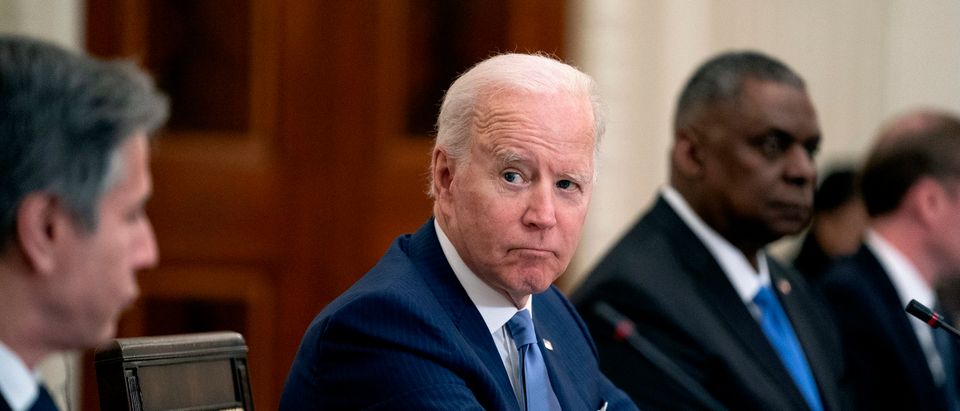The first six months of the Biden administration have been akin to someone with their first credit card — spend, spend, spend, and make sure not to think too hard about the mounting debt. President Joe Biden has tossed out plans for education and childcare, infrastructure and COVID relief which would cumulatively increase spending by a staggering $6.5 trillion. Yet if you were hoping that the president has a master plan to manage the long term debt, the release of Biden’s presidential budget will leave you sorely disappointed.
Rather than providing a roadmap to fiscal solvency, Biden’s budget doubles down on deficits. In total, the presidential budget would lead to $14.5 trillion in new debt over the next decade alone, on top of the more than $28 trillion of debt the federal government already owes.
Traditionally, presidential budgets are more like wish lists than serious legislative proposals, which makes Biden’s indifference to the debt even more striking. Even in a fantasyland where Democrats could pass whatever they want, Biden is showing that he still could come nowhere near balancing a budget.
This makes Democratic crocodile tears over the deficit impact of the 2017 Tax Cuts and Jobs Act (TCJA), including from Biden himself, that much harder to stomach. After all, Biden’s budget would add just under $1.5 trillion per year to the federal debt, roughly equal to passing a TCJA every single year.
Unfortunately, this is not an episode of “Whose Line Is It Anyway” — it’s not made up and the points definitely do matter. Even with historically low interest rates, the federal government spent $345 billion last year just paying the interest on its existing debt. When interest rates inevitably rise and as the size of the national debt increases, an ever-greater portion of the federal budget will go towards simply servicing the debt. That’s money that can’t go towards infrastructure, tax cuts or any other investments.
And while Democrats traditionally comfort voters by assuring them that only the very wealthy will be on the hook for covering these mounting costs, the fact is that that’s simply impossible. Even if the federal government simply seized all currently untaxed income over $1 million, it would raise only $8.9 trillion, not even enough to cover Biden’s budget for the next decade. And that’s ignoring the dire economic effects for the rest of the country were that to happen.
The truth is, paying for the kinds of plans that Democrats have continued to pile on would require a substantial increase in the tax burden for middle class taxpayers. It’s a budget strategy that relies on numbers getting large enough that they lose all meaning.
And while Biden’s budget is unaffordable enough as it is, it doesn’t even incorporate proposals pushed by the fringes of his party. Sen. Bernie Sanders’s Medicare-for-All proposal, for example, would cost a further $32 trillion over the next decade, while nebulous Green New Deal proposals would probably cost even more. Yet whether it’s Biden’s budget or Sanders’s, the result would be similar: exploding deficits precipitating a fiscal crisis.
If you’re looking to buy a car and have a $20,000 budget, it doesn’t matter whether the salesman is offering to sell you one for $50,000 or $5 million — you can’t afford it. Taxpayers need to start having that same attitude with irresponsible politicians. The political consequences for profligate spending are simply not sufficient at the moment, and until they are, politicians have little incentive to be good stewards of taxpayer dollars.
Andrew Wilford is a policy analyst with the National Taxpayers Union Foundation, a nonprofit dedicated to tax policy research and education at all levels of government.


